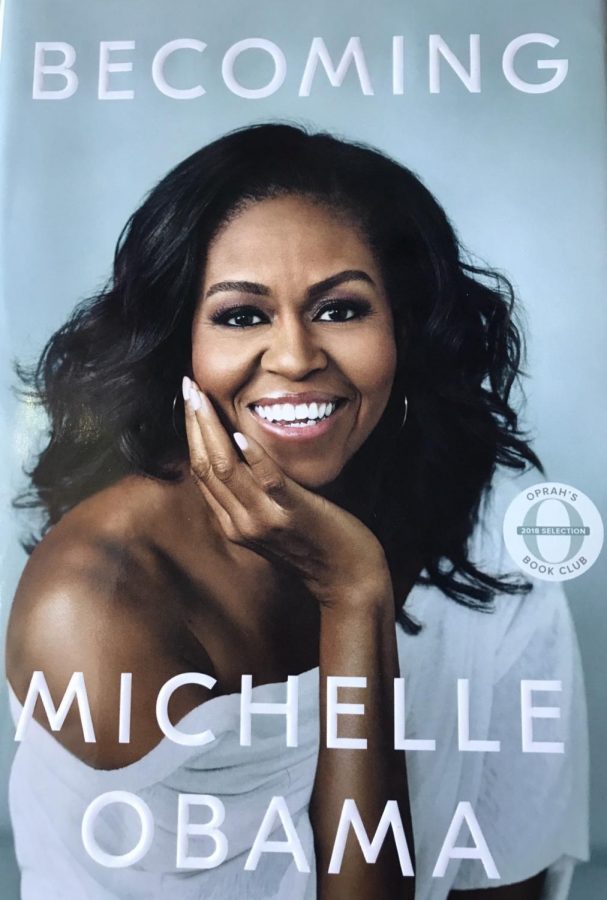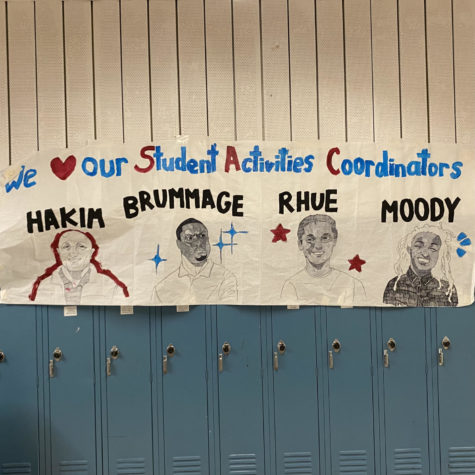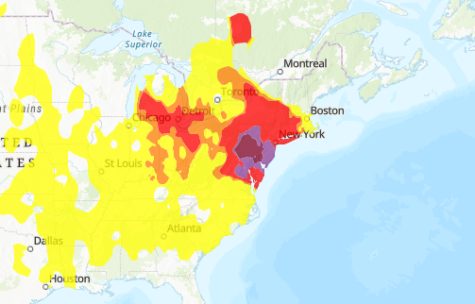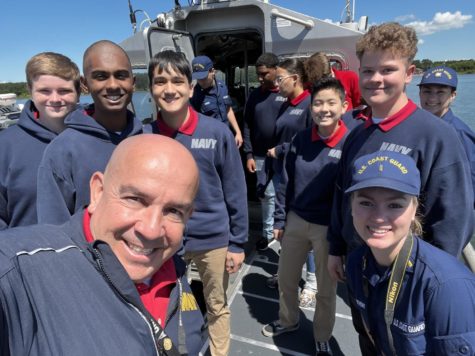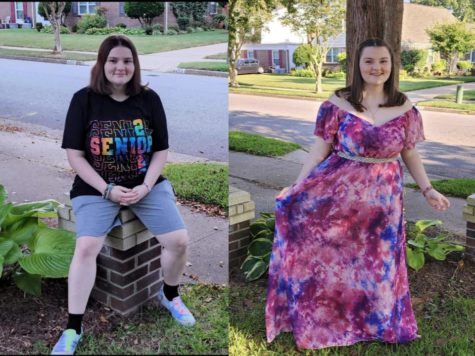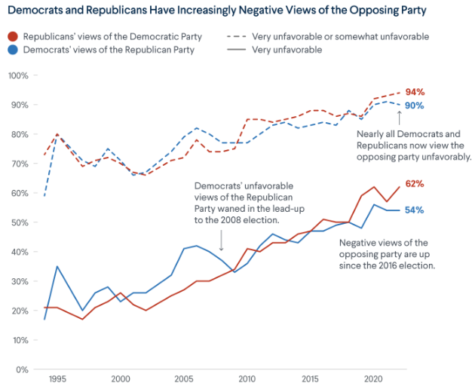Becoming empowers America
February 19, 2019
By Helena Savage
Eloquence. Elegance. Empowerment.
Michelle Obama encapsulates the perfect vision of beauty and resilience in her new memoir, Becoming. From her childhood of playing alone on her kitchen floor with her Barbie dolls in inner city Chicago, to the driven First Lady of the United States of America, preaching cultural diversity and female empowerment. Currently, many Americans view Obama as the socially inclined, intelligent, former mother to America. However, Becoming delves into her past as a secluded little girl who could only navigate around the tattered keys of her Aunt Robbie’s piano and bused through downtown Chicago every day to get to Whitney Young High School.
Throughout Obama’s life, her family shared an apartment with her Aunt Robbie, living on the upper level, even returning after college and living upstairs with Barack, once her great aunt Robbie died, and her parents moved downstairs. Obama cultivates a bond between her childhood life and adult life, through her love for the urban thrills of Chicago, and that little apartment on Euclid Avenue. Specifically, Obama’s fervent testament to family attests to her development as an individual with the support from her parents and brother.
She places emphasis on her father, Fraser Robinson, who treasured his Buick which they lovingly named “The Deuce and a Quarter.” Even though her family did not have a lot of money, that Buick was her father’s pride and joy. He blissfully took their family for rides simply for the feeling of cruising along the streets of Chicago in his own metal box of beauty. This car was the staple for all family outings, and once Obama’s father sadly encountered multiple sclerosis (MS) finding it harder to walk, the Buick was a place of sanctuary to feel in control.
Obama highlights that it’s the special things in life which shape us into the people we become. Material items, including her father’s Buick, may strike up tears and reminiscence, but Obama’s whole childhood was spent living mindlessly in the backseat of this car. The story of Becoming touches on the personal details such as her father’s MS and how her family had to cope with the enigmatic despair of grief and worry especially once he passed away.
It is the personal details such as making her father’s disability such a profound part of the memoir that speaks true to the person Obama has become. Her father’s perseverance to push through the pain, and continue going to his job at the Water Filtration plant every day, pulled me into the memoir.
Obama acknowledges our swiftness in coordinating an excuse, unlike her father. Becoming transgresses the lesson from her father as he “loved to talk, he didn’t want to talk about his own problems” since this was viewed as “self-indulgent” (Obama 137). The mere solution for discomfort in her father’s life would be “to buy him a bigger pair of work boots” to deal with the swelling of his feet (Obama 137). In today’s reliant society we could all take a small dose of reality to get away from the superficial excuse makers we have become.
Similar to losing her father, Michelle also lost her best friend Susanne from Princeton, to cancer in her twenties. This amounted feelings of unfulfillment as Susanne lived as a free spirit and did what made her happy. All of us could learn to live on the edge of the wild every once in a while to avoid regret, which is exactly what Michelle did. As hard as it must have been to talk about her father and best friend from college, with Susanne’s death she perfectly coexists the feelings of grief and happiness. Throughout the whole memoir, she embroiders an articulate patchwork of her life through tragedy to continue Becoming Herself.
Becoming is broken into three distinctive sections: Becoming Me, Becoming Us, and Becoming More. Stylistically, she breaks her life up into different sections to show her development and growth into the Obama that she is today. Specifically, I thoroughly enjoyed Becoming Me, as it discusses her life growing up in 1960’s Chicago with close-knit family outings and living in a rapidly busy city.
Her discussion of happy, light-hearted immaturity as a girl, soon trickles into Obama’s development as a Princeton and Harvard Law Scholar, earning her place at Sidley and Austin (a highly acclaimed law firm) and eventually City Hall and the University of Chicago. Obama discusses her childhood and years before the presidency as a whirlwind of the melodious music of Jackson 5, shopping at the Water Tower Place mall after school, and driving in Barack’s “banana-yellow datsun” with the hole in the floor (Obama 151).
It’s the transcendence that makes this memoir exuberantly powerful and endearing. The idea of reading about the woman America knew only from TV screens and newspapers for her incredible outreach into America’s hearts, creates a deeper voice inside all of us, as we realize that Obama has experienced a life a lot like most American citizens. Through this memoir we are able to see her incredible role as a mother to Malia and Sasha, while maintaining herself as a public figure. Although she currently is a role model to many individuals, she expresses, in Becoming, her grief, falling in love, economic and racial hardships, career uncertainty, and the common thought of “am I enough?” These are all events and difficulties people go through in their own lives, and this makes Obama an even more astounding and relateable woman in today’s society. Michelle especially represents a voice for minorities as she “felt to speak honestly and directly about what it meant to be marginalized by race and gender” (Obama 405).
Specifically, Obama expresses the necessity of upholding eloquence and proper speaking, which she learned from her parents on her road to success. One specific afternoon at her grandfather’s home in Parkway Gardens, Obama describes her cousins and her relaxing on the front porch. However, “At one point, one of the girls, a second, third, or fourth cousin of mine, gave me a sideways look and said, just a touch hotly, ‘How come you talk like a white girl?’” bringing about confusion within herself (Obama 40). She then compares this question to how Americans would eventually approach Barack Obama in his presidency. I found a profound lesson in this section of Becoming, as Obama takes a present day tone to “look back on the discomfort of that moment now and recognize the more universal challenge of squaring who you are with where you come from and where you want to go” acknowledging that we all are still learning who we are on this winding road called life. She stresses the idea that everyone comes from different walks of life, even family members. However, it is important to always speak with confidence and annunciation.
Aside from Becoming Me, Becoming More ties the whole memoir together, when the First Lady and President take their place in the White House as the first African American family to hold presidential office. This section compassionately compiled everything learned about Obama’s life into an influential leadership role. To me, this part of Becoming truly outlined who Obama had become, evolving from the girl who could at first only navigate around Aunt Robbie’s piano with its chipped and tattered keys, to the lead activist for children across the nation, enacting countless health initiatives. In Becoming More, Obama illustrates overcoming every broken piano key of life and sitting as the First Lady of the USA.
Obama preaches the message of Becoming something that people may have doubted within us, told us we couldn’t do because of our background, or even fighting the internal storm of crisis. “So many of us go through life with our stories hidden, feeling ashamed or afraid when our whole truth doesn’t live up to some established idea. We grow up with messages that tell us that there’s only one way to be American–that if our skin is dark or our hips are wide, if we don’t experience love in a particular way, if we speak another language or come from another country, then we don’t belong. That is, until someone dares to start telling that story differently” (Obama 415).

